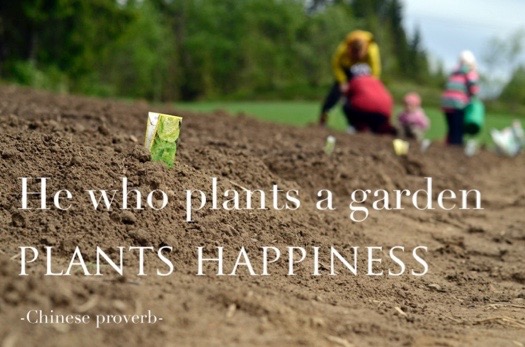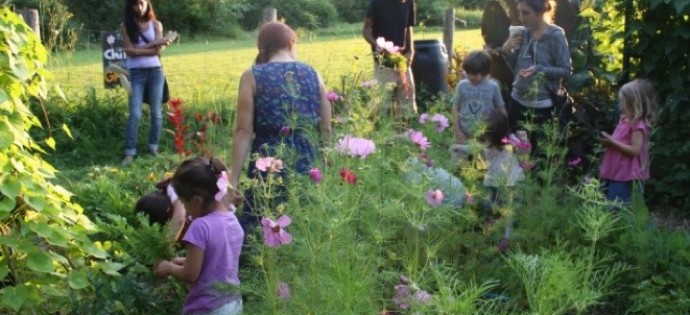‘To plant a garden is to believe in tomorrow’ Audrey Hepburn
To coincide with National Gardening Week we are delighted to introduce our new regular gardening column by noted local landscape designer, Manoj Malde. Here he explains the extensive health benefits of gardening and future columns will feature practical advice, seasonal inspiration and insider tips from the trade.
How many of us look at a green space or a beautiful garden and immediately feel soothed by the image in front of us? I know I do. My opinion may be biased, but I truly believe that as we live in an ever increasing concrete world where buildings reach for the sky and natural light is restricted, our green space becomes ever more precious. Our environment does effect the way we feel.
Mental health is equally as important as physical health. Good mental health in children will help them to grow into adults who will be able to cope with what life throws at them. The pressures of life these days mean that many children don’t get the opportunity to go to parks, climb trees, play in the garden and come in contact with the soil. I remember as a child I was fortunate enough to be able to do all of these. These activities have been replaced by TV, computer, computer games and mobile phone. Surveys are showing that more young people are suffering from mental health problems than 30 years ago. The mental health of the state is not a pleasant picture. Prescriptions for anti-depressants are at record levels in England, costing the NHS and the tax payer a fortune. Fifty million anti-depressant prescriptions were dispensed in 2012.*

Gardening is good for our health. Patients suffering from depression are often told to exercise. Gardening is physical work (exercise) which releases endorphins that help to lift our spirits. There is no stress or pressure as one would experience in an office environment. You can work at your own pace. Gardening provides an opportunity to learn new skills and to gain confidence. What’s more, gardeners are a good bunch of people always willing to share their knowledge and give support.
Community gardening is a great way to meet and to interact with other people, helping to build new social networks. This can be done through local gardening clubs, allotments or simply volunteering. This can help to overcome feelings of loneliness and isolation, and can also lead to other opportunities. Gardening does not suffer age, class, colour or social discriminations like other industries do.
When we feel ill, we ‘hope’ we get better. Planting a seed also requires hope. The hope that it will grow. This then brings out the nurturing side in us. We have to nurture the seedling as it grows, so we now have a responsibility to look after the seedling. As the seedling grows into a plant it may flower or bear fruit. Is there not a sense of achievement and satisfaction that we have made that happen?
These small steps help us gain confidence and self esteem. They motivate us to look forward to a new day. Charities like Thrive and Mind do wonderful work by using gardening as a form of therapy for people going through depression.
Researchers at Bristol University and University College London have been carrying out research on how friendly bacteria in soil helps the brain to produce serotonin, thus acting like an anti-depressant. Low levels of serotonin are associated with aggression, anxiety, depression, obsessive compulsive disorder and bi polar. Anti-depressants help to increase our serotonin levels. Mycobacterium vaccae (the friendly bacteria) is said to work in exactly the same way.
So imagine how much money the NHS and the tax payer could save if GPs could write prescriptions for gardening rather than drugs. Most importantly let’s get children involved in gardening to ensure they grow into young adults both physically and mentally able to take on life’s challenges.
*HSCIC(2013) Prescriptions Dispensed in the Community Statistics for England (2002-2012), London: Health and Social Care Information Service.

Manoj Malde is a landscape designer. His company, Couture Gardens provides a full garden design service and regular maintenance.




